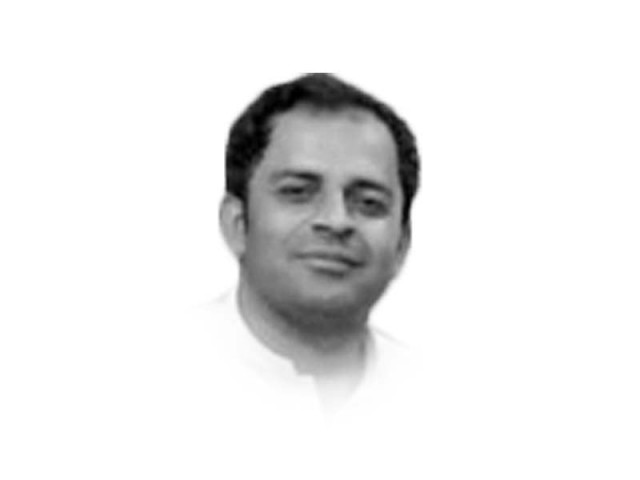The country on the cusp
Anarchy seems to have set in for deciding the destiny of our country

Though Pakistan’s is a chequered history, the last 12 months have seen the country’s politics, economy and society pushed into an uncharted trajectory. Following the ouster of the Imran Khan-led government through a vote of no-confidence in April last, the system has taken a turn to holistic degeneracy. The country has never been in the clutches of chaos as it is today. Thanks to the “extensive experience” of PDM-led government in statesmanship, the public has bidden adieu to bad days only to be welcomed by the worse ones. From history, the stakeholders have perhaps only learnt to keep vested interests far ahead of the collective national good. Repeated miscalculations and experiments have brought the country to the cusp of collapse.
With the state scrambling to meet the needs of the challenging times and staying relevant in the fluid global realities, anarchy seems to have set in for deciding the destiny of our country. The biggest reason behind this is the chronic national practice of putting personal interests and egos ahead of collective well-being. For the powerful elite, preserving the narcissistic status quo has remained more important than letting the country on to the road of true democratisation through smooth political practices. The existing national plight is a consistency of this practice.
Instead of arresting the national degeneration and public miseries, the PDM-led government and its backers view Khan as the greatest national threat and hence have directed the state machinery and the scarce national resource towards containing him. The government appears scared of the ever-growing popularity of Khan and desperately tries to reverse the wave of public support. This is perhaps because they foresee their political careers and the ill-built citadels of the status quo on the verge of eternal collapse. The system, therefore, is reeling in a deep clutter and apparent withdrawal symptoms.
Though the level of support that Khan has garnered might rightly be seen as a bad omen for the gods of the chronic status quo, it is hardly without a reason. The overwhelming public support is, without an iota of doubt, the wages of the sin of the power elite selfishly reining in the country’s fate for seven and a half decades. Promises and false hopes have made the public sick of the system’s inaction. Amidst the growing weariness, the enlightened public finds Khan as a knight in shining armour. And an honest assessment hardly makes it something to be refuted. Whether or not one likes it, Khan has emerged as a new political force to be reckoned with. An overwhelmingly growing public support – expressed or implied – and the goodwill he enjoys among the masses, diaspora and the international community prove this.
Many – particularly in government and beneficiaries of the status quo – might deny this, but their actions and over-activism speak otherwise. The crackdown on Khan, his sympathisers and journalists as well as the occasional media blackout point towards greater frustration in the power corridors. Instead of treating Khan with the true spirit of the law and constitution, the government has resorted to repressive and egoistic measures. Foreseeing a historic defeat in the coming elections, the government is making all-out efforts to run from it.
However, the repressive measures serve Khan more than the government. The aggression and tactics of evading the constitutionality agreed electoral process adds to Khan’s support. The dubious tactics also generate public hatred against the institutions. This way, the coalition government contributes towards the erosion of the institutional reputation and makes them controversial.
Against this backdrop, a saner and more democratic approach from all stakeholders is needed. This demands a graceful surrender of all egos and vested interests by the power corridors. Allowing people to be the chief architect of the new social contract would be an inclusively beneficial bet in the country’s history. An earlier, free and fair election is, therefore, the only way out of the prevailing chaos.
Published in The Express Tribune, March 26th, 2023.
Like Opinion & Editorial on Facebook, follow @ETOpEd on Twitter to receive all updates on all our daily pieces.

















COMMENTS
Comments are moderated and generally will be posted if they are on-topic and not abusive.
For more information, please see our Comments FAQ